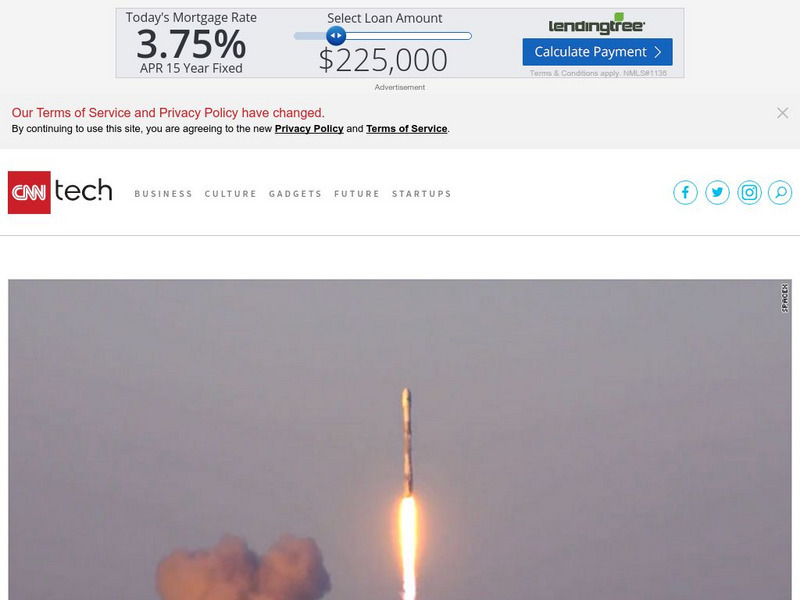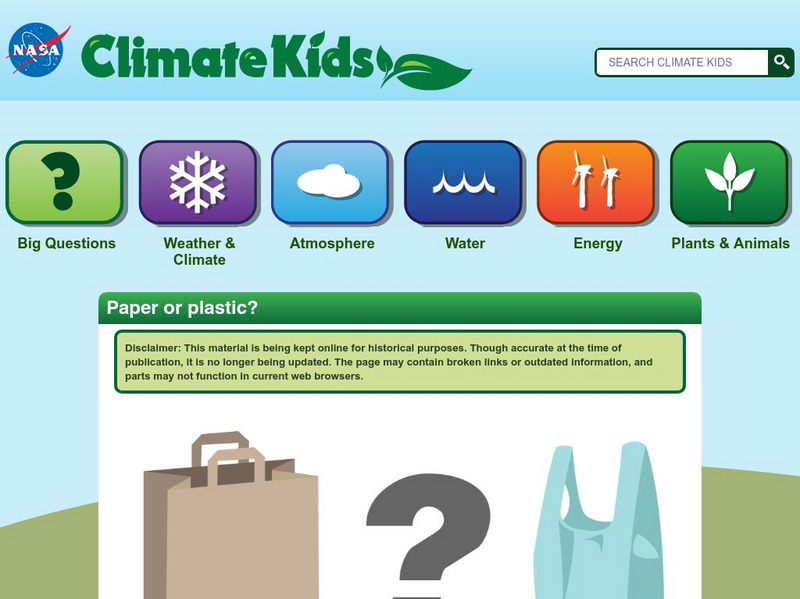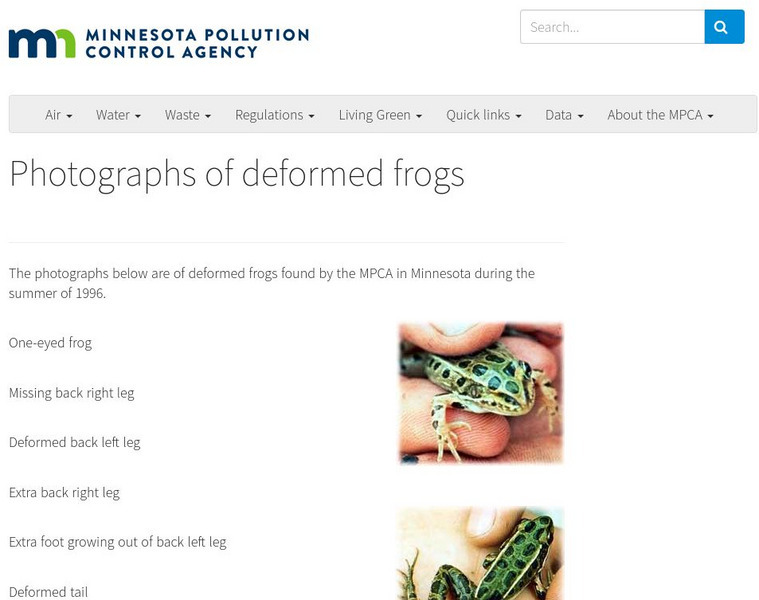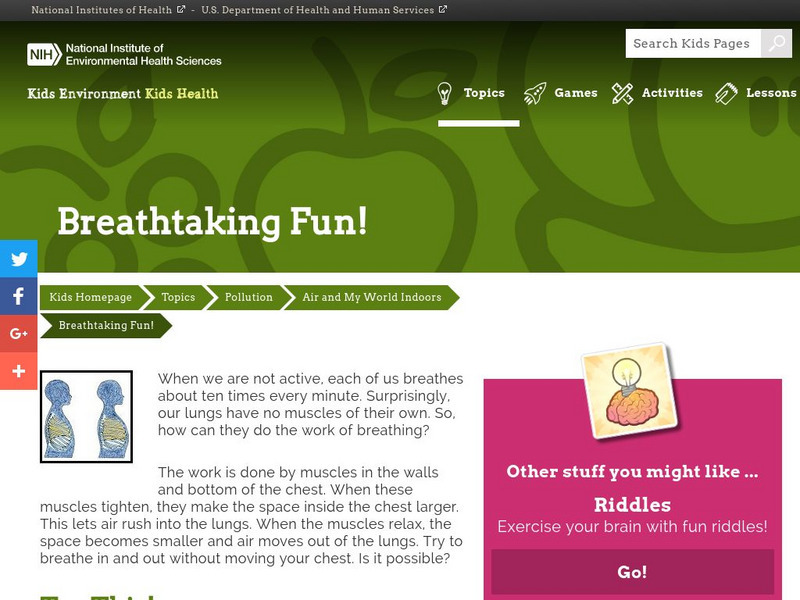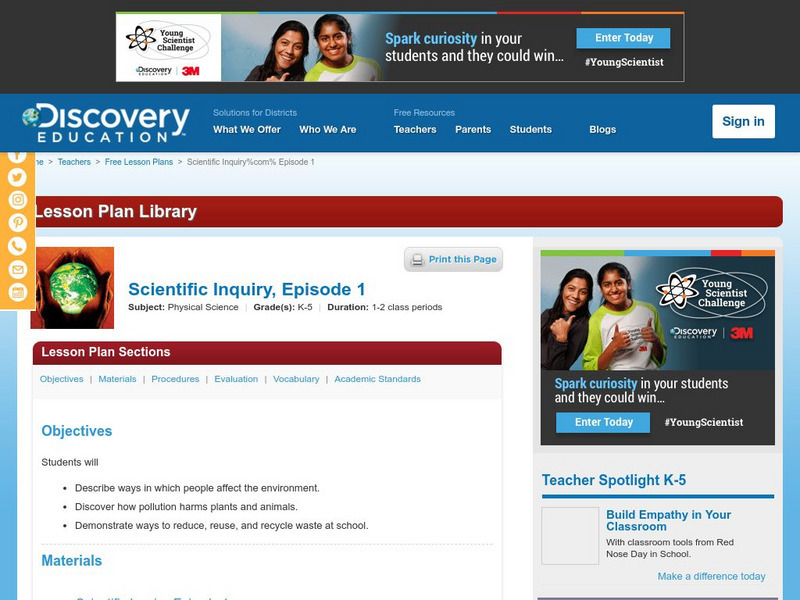Other
Arctic Natives, Wildlife Threatened by Pollution
An article about the industrial chemicals and pesticides that are threatening life in the Arctic. Explains which species are more vulnerable to the pollutants.
Other
King County: Household Hazardous Waste
Characteristics of hazardous waste products are provided on this site. Alternatives to use which will not harm the environment are also explained.
CNN
Cnn: Tech
CNN coverage of the latest in science and technology news. Website includes the environment and discovery highlights.
Other
Planet Ark: Cheap Air Travel Adding to Global Warming
Interesting presentation of information to suggest that cheap airline prices are causing more people to fly, resulting in more jet fuel burning which pollutes the environment. Use this site to obtain a new perspective on the effects of...
Other
Pollution Watch: Get Answers About Pollution in Your Community
PollutionWatch provides a wealth of information about pollutants and the facilities that release them into our communities. The site gives detailed information about who is polluting and the environmental laws in place protecting us....
CK-12 Foundation
Ck 12: Earth Science: Water Pollution
[Free Registration/Login may be required to access all resource tools.] Describes the sources of water pollution.
NASA
Climate Kids: Be a Power Saver
Do you ever wonder where electricity comes from? Discover the process of how power plants create energy and it ends up at the touch of your fingertips.
NASA
Climate Kids: Paper or Plastic?
Have you ever been in the grocery store and you were asked for paper or plastic? Discover the pros and cons of either choice, and then ultimately decide which might be the best.
Other
Minnesota Pollution Control Agency: Photographs of Deformed Frogs
Photographs of deformed frogs discovered in the wild and held in captivity from 1997 - 2006. Each picture has a brief explanation of the deformity.
Other
Epa: Today's Aqi Forecast
An interactive map used to find the current and forecasted air quality index for any location in the United States.
National Institutes of Health
Niehs: Breathtaking Fun
Learn how your lungs help you breathe by making a model of the way your lungs work using a clear plastic bottle, scissors, and two medium-sized balloons.
National Institutes of Health
Niehs: Asthma and Allergies and Their Environmental Triggers
Discover what causes allergy and asthma attacks and what you can do to prevent them.
National Institutes of Health
National Institute of Environmental Health Sciences: Let's Talk About Water
Discover why water is so important, especially clean water. Find out where water comes from and how we can make it safe to drink and free from pollution.
ClassFlow
Class Flow: Organisms and Ecology
[Free Registration/Login Required] This lesson is intended to be a Science lesson about organisms and ecology for middle school students.
Other
National Pollutant Inventory: Background Information
This site focuses on water and air pollution in Australia, with a brief mention of sea breezes.
ClassFlow
Class Flow: Understanding Ecosystems: Humans Part 4 of 4
[Free Registration/Login Required] Students will be able to understand how humans affect and interact with different ecosystems (such as pollution, habitat restoration). There are opportunities to link to the web to explore this further.
ClassFlow
Class Flow: Air Pollution
[Free Registration/Login Required] Explore Air Pollution with George the Gecko. Learn about the major air pollutants, AQI, (Air Quality Index) and what we can do to help! Games and links to outside websites are included.
ClassFlow
Class Flow: Changes in Habitats
[Free Registration/Login Required] A 2nd grade unit on how people and weather can change habitats. Topics include too much and too litter rain (flooding and drought), lightning and fire, and land, water, and air pollution. This flipchart...
Other
The Catholic University of America: Clean Air Act
This site briefly explains the Clean Air Act, as well as having links to very in-depth explanations of the act.
National Geographic Kids
National Geographic Kids: Drinking Water: Bottled or From the Tap?
Why don't more people drink water straight from the kitchen tap? Read this author's thoughts on drinking water from the tap or bottle.
Ducksters
Ducksters: Animals for Kids: Amphibians in Danger
Kids learn about the decline of the amphibian population. Why are they endangered and what is causing it.
Discovery Education
Discovery Education: Scientific Inquiry, Episode 1
In this classroom activity, students discuss how people and pollution affect the environment. Then they demonstrate ways to recycle, reduce, and reuse.
HotChalk
Hot Chalk: Lesson Plans Page: Aquatic Wildlife and Pollution
This lesson plan is designed to teach young children about healthy and hazardous marine and freshwater environments and be able to describe the effects of the pollution of plastics on wildlife.
HotChalk
Hot Chalk: Lesson Plans Page: Causes of Pollution
This lesson plan is designed to teach young children identify the types of pollution, the sources of the pollution, and how they can protect the environment from further pollutants.



